For the 2019-2020 academic year, the College introduced five new interdisciplinary minors spanning fields from science and sociology to education. The programs consider students’ diverse passions and come as a result of undergraduate and faculty input, gathered annually. The intention is to offer invigorating ways to supplement majors as well as opportunities to explore curiosities.
To learn more about these new academic programs, the College Editorial Team talked to five students about their motivation for declaring these minors, as well as their experiences thus far.
Brendan Brzycki: Data science
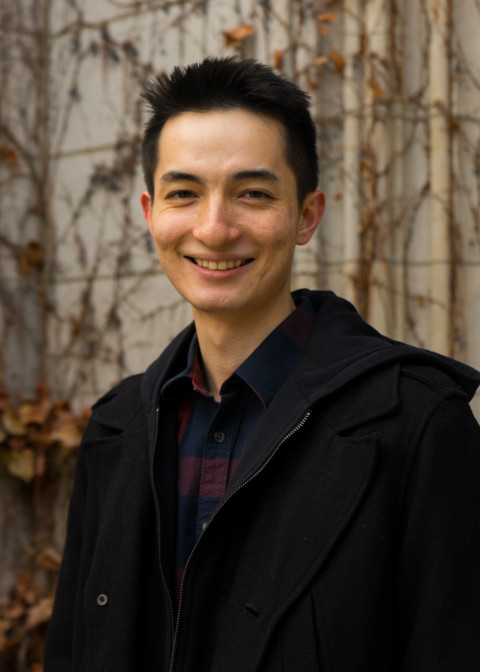
After scouting out the courses offered by the computer science department, third-year Brendan Bryzcki realized that many of the topics he was interested in were covered in the curriculum of the data science minor, which equips students with the computational and analytical skills to confront data problems across various fields of study.
“I'm most excited about being able to take classes that teach all steps of the data science process–not only best practices for obtaining and analyzing data, but also ways to communicate insights to others,” said Bryzcki, who is majoring in computational and applied mathematics. “Having an official minor dedicated to data science is great because it allows students like me an opportunity to receive a holistic overview of the field.”
Bryzcki is currently taking the first part of the two-course sequence: “Introduction to Data Science.”
“One of the professors teaching the course devoted a lecture to a case study about identifying the authors who wrote each Federalist Paper,” Bryzcki said. “This was really interesting to me because this small project had a little bit of everything I'm hoping to learn throughout the minor: acquiring and cleaning data; performing basic analysis on the data; using machine learning techniques to discover trends; and visualizing the results to tell a story behind the data.”
Mark Treitel: Education and society
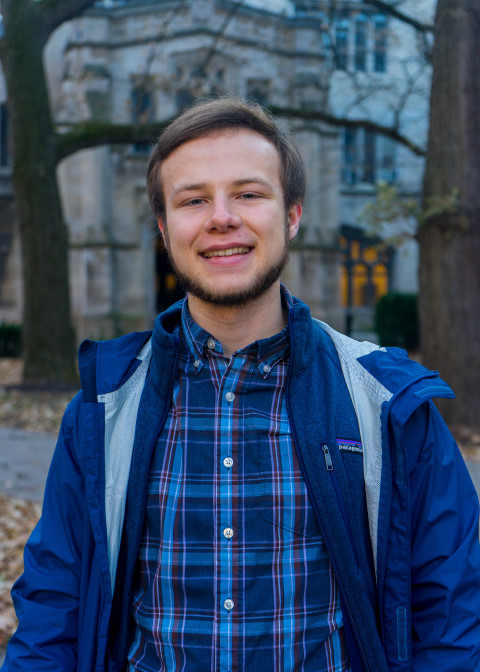
Mark Treitel, a fourth-year majoring in history and minoring in German, has wanted to pursue a career in education since high school. At UChicago, he is involved with the UChicago Careers in Education program and works as a tutor at Kenwood Academy High School through the Neighborhood Schools Program.
He was immediately drawn to the education and society minor, which focuses on how people learn, teach and relate to various communities.
“Although the classes are still largely theoretical, they place a little more emphasis on the experience of teachers, students and others working within the educational system, and how different policies or approaches affect the learning that goes on in classrooms,” he said.
Treitel has already taken “Contemporary Approaches to K-12 Learning,” a survey course on how schools and classrooms are run, and he is currently immersed in “Education and Social Inequality.”
“‘Education and Social Inequality’ has been eye-opening in providing a more in-depth history of Chicago Public Schools and how racial inequality was cemented into the educational system, as well as some broader theories about the different objectives in American education and how those goals have varied based on time, place and the people being educated,” he said.
Naina Prasad: Geographic information science
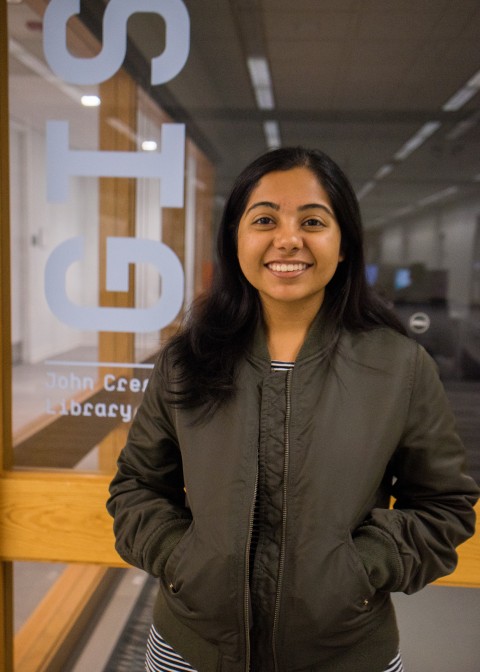
After attending a presentation about the programming language R at an OEconomica event last year, second-year economics and urban studies major Naina Prasad knew she was interested in geographic information science, a minor focused on spatial analysis and statistics in the social and physical sciences.
Prasad is grateful for the welcoming and encouraging environment she received and is pursuing this minor because of her amazing experiences thus far. She attends CSDS weekly study groups at UChicago’s Center for Spatial Data Science and research presentations from the Mansueto Institute for Urban Innovation. She also has led an R-Visualization workshop for UChicago’s chapter of the Tobler Society, a recognized student organization founded with the cooperation of the Center for Spatial Data Science.
So far, she has taken “Introduction to GIS” and “Spatial Analysis,” which gave her broad exposure to the minor, and she is looking forward to the next sequence, which will develop her technical skills.
“It’s very easy to feel discouraged in intro level classes, but the intro to GIS class I took had the complete opposite effect,” Prasad said. “It was insightful, broad and provided me enough exposure that I felt confident enough to commit to the minor. This minor will allow me to develop insights and skills necessary for me to bring a positive impact into urban planning, policy and data science.”
Leen Bakdash: Health and society
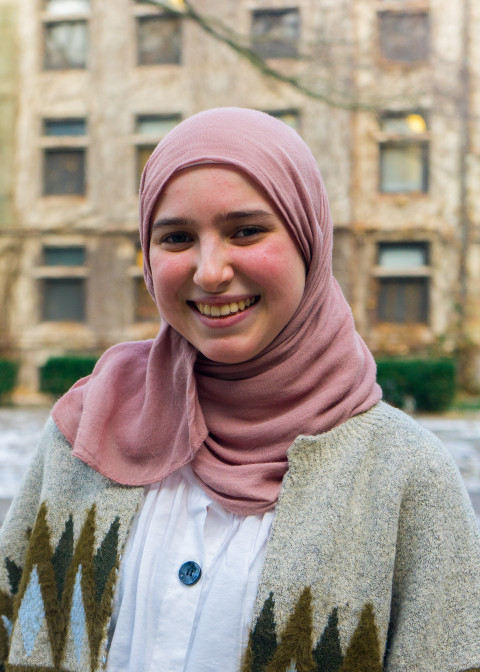
A biological sciences major, fourth-year Leen Bakdash was looking to satisfy her desire to understand the social context of medicine and its everyday applications to health. When health and society—a new minor exploring individual and population health through a social, political, and economic lens—was announced, Bakdash was excited about the prospect of a program addressing medicine and its vast global implications.
“My favorite class I’m taking right now is called ‘Health Systems in Low and Middle-Income Countries,’” she said. “I mainly signed up because I was interested in developing some tools to analyze health systems, but the class has exceeded my expectations. It’s really opened my eyes to the ways our history has shaped, and continues to shape, the way we address global health. It’s also really challenged me to recognize the complexity of health systems in low- and middle-income countries and to try to conceptualize potential approaches to strengthen health systems.”
Aside from the academics, Bakdash appreciates the diversity that her classmates bring to the room.
“There are about 11 people in the class, and everyone’s coming from such different backgrounds (ranging from biology to public policy to economics). Everyone has really unique perspectives to contribute,” she said.
Eugene Han: Inequality, social problems, and change
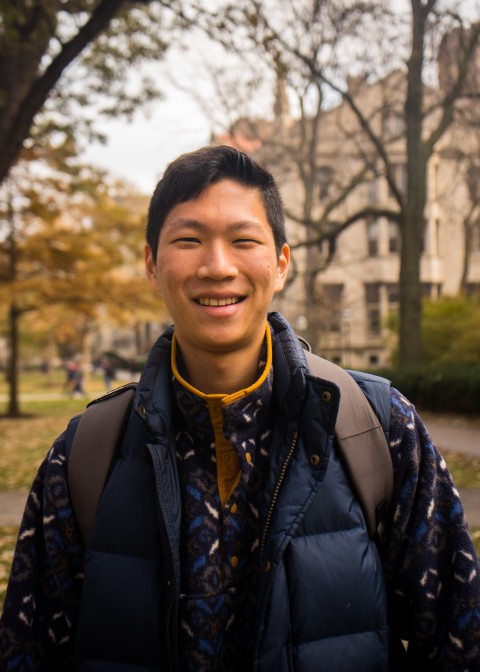
Eugene Han, a third-year majoring in environmental and urban studies, found extra space in his schedule to add the inequality, social problems, and change minor, a program offered by the School of Social Service Administration focused on converting theory into action in order to reduce inequality and improve people’s quality of life.
Han works for the Abrams Environmental Law Clinic, whose primary goal is to identify and assist underprivileged and underserved clients facing environmental problems. This position, coupled with his upbringing, drew him to this new minor program.
“I'm from San Francisco where on-the-ground activism is almost a part of our identity,” he said.
Han has not yet taken classes for the minor since he is finishing up his major, but he is taking a two-course sequence “Environmental Justice Research Project” that will prepare him for some of the minor’s more advanced coursework.
In the future, Han is excited to take electives such as “Immigration, Law, and Society,” “Inequality at Work: The Changing Nature of Working Class Jobs and Prospects for Improvement” and “Global Justice and the Ethics of Immigration.”